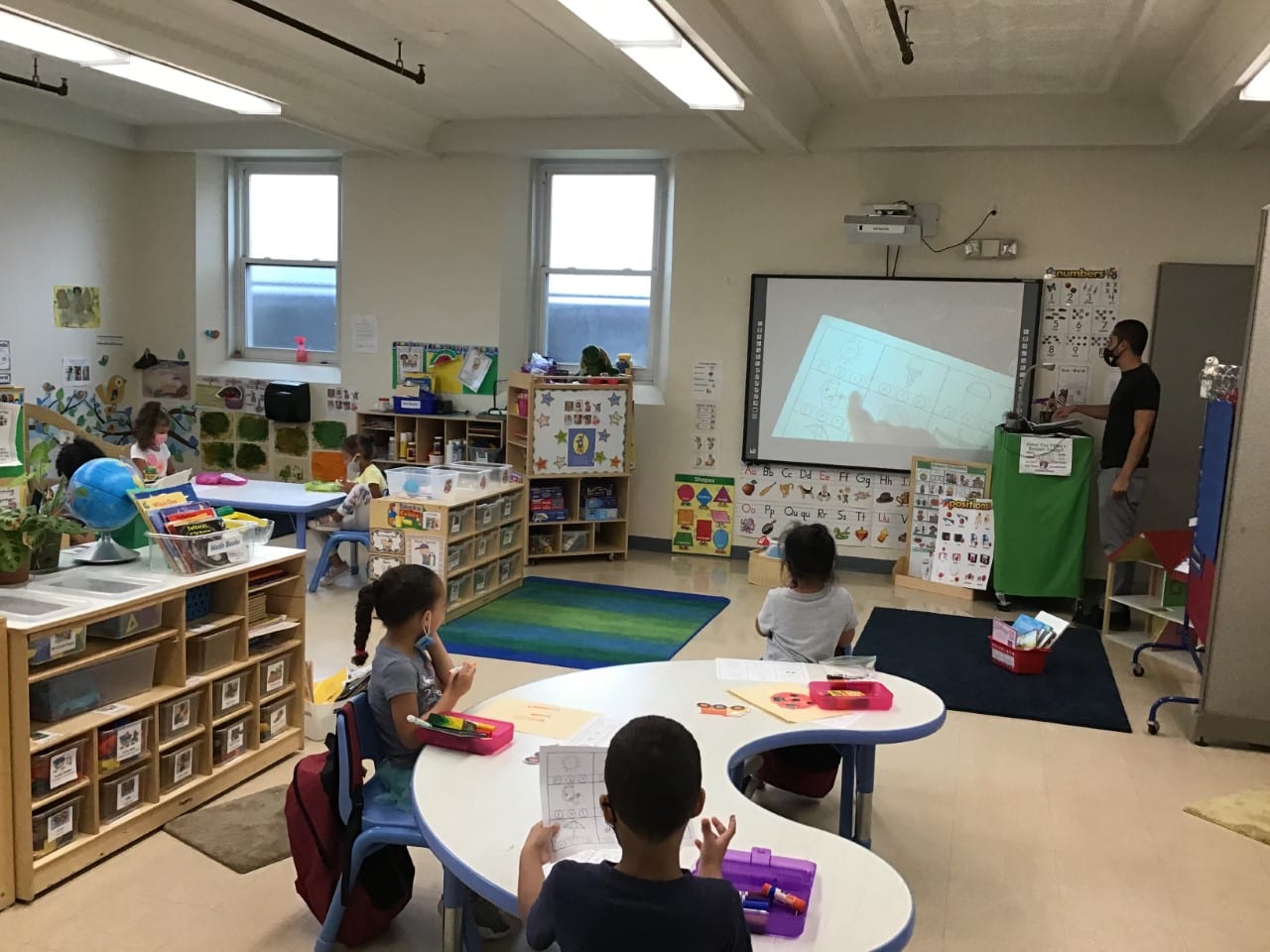
CHILD CARE’S CRITICAL importance to our economy was obvious as the COVID-19 pandemic spread throughout the Commonwealth. Some parents scrambled to work remotely while caring for children. Others rushed to secure care so they could perform essential work, much of it on the frontlines to ensure the health and well-being of Massachusetts residents.
But even as the pandemic revealed the essential nature of child care, it’s also made it more vulnerable than ever. Lawmakers are entering a critical moment for the early education and care sector as they debate the 2021 fiscal year budget. And the pandemic may be coloring perceptions about the demand for child care that could hurt children and families in the long run.
The fact is that the child care supply has dwindled in Massachusetts during the pandemic as providers closed in the face of fiscal challenges or limited enrollment to accommodate new safety protocols. The Department of Early Education and Care recently reported that enrollment is at 66 percent of pre-COVID numbers. This sharp drop includes parents who have chosen not to send their children or who now need very different arrangements than they did prior to the pandemic. As lawmakers account for these changes in the upcoming budget, do the current COVID-related trends signal decreased demand and justify a reduction in investments to stabilize and secure the sector?
The simple answer? No.
Child care “supply,” the number of programs and their classroom size, and “demand,” the need among working parents with children under age 5, often don’t match. The pandemic widened the gap between supply and demand, with an increasing mismatch between need and utilization.Even in normal times, chronic barriers to child care access – e.g., affordability, quality, and availability – have pushed many parents into the unlicensed child care market, despite preferences. In unusual times like these, the mostly private child care market struggles even more than normal to adequately respond to demand for its highly regulated service with a supply that is both high-quality and affordable.
This month, the Boston Opportunity Agenda released “Boston’s Childcare Supply Crisis: What a Pandemic Reveals,” which shows the child care supply in Boston is continuing to fall, even though child care needs increasingly aren’t being met. Some neighborhoods lost up to 15 percent of their slots between December 2017 and March 2020, and those losses have increased during the pandemic by up to a third (as of September 2020). Providers serving more subsidized children were more likely to reopen, suggesting that lowering barriers to care is good for business.
High cost has long been a barrier for many working parents. Even before COVID-19, many working parents were forced to make compromises on what ought to be non-negotiable features of quality like health, safety, and socio-emotional support to secure affordable care so that they could work. That can make it appear parents just want space, regardless of quality. In fact, they had no choice. But during a health care crisis, concerns about cost may be trumped by perceived quality.
As a result, a high-quality licensed setting that exceeds safety guidelines may only be accessible to those with higher incomes. Others may find unlicensed care that struggles to minimize health concerns, or more affordable care that compromises quality – with troubling implications for children. But still others may opt to use no care at all, forcing them to leave the workforce or juggle work with child care. Thus, high-quality child care and economic health and growth are inextricably linked.
Why is this important to realize now?
Lawmakers need to understand the common mismatch between supply and demand in the child care sector and that today, changes in demand may be more about parents’ reluctance to send their children to lower quality care than actual need.
When the COVID-19 pandemic abates, more parents will feel safe sending their children to child care, though the unwillingness to use lower quality care may remain — and that’s a good thing. If Massachusetts invests in early education and care, then capacity will rebound and be ready to serve all children, and the Commonwealth’s economy can be rebuilt more equitably and efficiently. The system would be more resilient to future economic shocks, and a parent’s decision to work – and their children’s development – won’t be subject to whether and how much those parents can afford to pay.
That’s a wise investment. Pratima Patil is the senior manager for programs and policy for the Boston Opportunity Agenda. Marybeth Mattingly is part of the leadership team for the Federal Reserve Bank of Boston’s regional and community outreach group. Sarah Savage is a senior policy analyst at the Boston Fed. The views expressed are the authors’ and not those of the Federal Reserve Bank of Boston, the Federal Reserve System, or its Board of Governors."care" - Google News
November 29, 2020 at 06:40AM
https://ift.tt/37gvGKj
CommonWealth Magazine - CommonWealth magazine
"care" - Google News
https://ift.tt/2N6arSB
Shoes Man Tutorial
Pos News Update
Meme Update
Korean Entertainment News
Japan News Update
Bagikan Berita Ini














0 Response to "CommonWealth Magazine - CommonWealth magazine"
Post a Comment